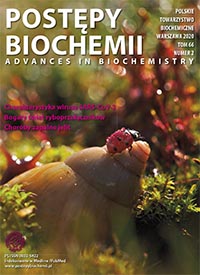Environmental factors increasing the risk of activation and development of inflammatory bowel diseases
DOI:
https://doi.org/10.18388/pb.2020_318Abstract
Inflammatory bowel disease (IBD) is a particularly troublesome disease that has a huge impact on the human digestive tract, mainly the intestine. These diseases manifest themselves as chronic, uncontrolled inflammation of the intestines, difficult to control, with periods of spontaneous exacerbations and remissions. Depending on the variety of symptoms present and their location in the human gastrointestinal tract, these diseases can occur in various forms. The most common: ulcerative colitis (UC) and Crohnâs disease (CD). The underlying cause of activation as well as subsequent development is not clearly defined, but it is known that these disorders are autoimmune. The pathogenesis of IBD is associated with chronic idiopathic, recurrent gastrointestinal inflammation. Exposure to many environmental factors, which are partially discussed in the following work, especially in people genetically predisposed to the development of these diseases, can activate the chronic inflammatory process of the intestine.
Downloads
Published
Issue
Section
License
Copyright (c) 2020 Advances in Biochemistry

This work is licensed under a Creative Commons Attribution 4.0 International License.
All journal contents are distributed under the Creative Commons Attribution-ShareAlike 4.0 International (CC BY-SA 4.0) license. Everybody may use the content following terms: Attribution — You must give appropriate credit, provide a link to the license, and indicate if changes were made, ShareAlike — If you remix, transform, or build upon the material, you must distribute your contributions under the same license as the original. There are no additional restrictions — You may not apply legal terms or technological measures that legally restrict others from doing anything the license permits.
Copyright for all published papers © stays with the authors.
Copyright for the journal: © Polish Biochemical Society.




